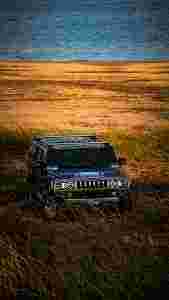Banned Books: A Growing Threat to Education and Free Expression
In recent years, there has been an alarming surge in book bans across the United States. This disturbing trend has seen books removed from public schools and libraries at an unprecedented rate, often due to their content addressing race, gender, sexuality, or other sensitive topics. This censorship poses a grave threat to education and free expression, undermining the fundamental principles upon which our democracy is built.
A Historical Perspective on Book Bans
Book bans are not a new phenomenon. Throughout history, governments and other authorities have sought to suppress books deemed controversial or subversive. In the United States, book bans have been used to silence dissenting voices and reinforce dominant ideologies. For example, during the McCarthy era of the 1950s, books by authors such as Langston Hughes and Dashiell Hammett were banned from libraries and schools due to their alleged communist sympathies.
The Current Wave of Book Bans
The current wave of book bans is particularly alarming due to its scope and intensity. In 2021, the American Library Association recorded 729 book challenges, compared to 156 challenges received the year prior. This represents a more than four-fold increase in book challenges in just one year.
The books targeted for removal often deal with issues of race, gender, sexuality, or other sensitive topics. This is especially concerning as these books provide essential perspectives and experiences that are often marginalized in mainstream discourse. By banning these books, we are silencing the voices of those who have been historically oppressed and marginalized.
The Impact of Book Bans on Education
Book bans have a devastating impact on education. When books are banned, students are denied access to important information and perspectives that are essential for their intellectual and personal growth. This can lead to a distorted understanding of history, society, and the world around them.
Furthermore, book bans send a clear message to students that certain topics are taboo and cannot be discussed. This can create a climate of fear and self-censorship, where students are afraid to express their own thoughts and ideas for fear of being punished.
The Threat to Free Expression
Book bans are a direct threat to free expression, one of the most fundamental principles of our democracy. The First Amendment to the United States Constitution guarantees the right to freedom of speech, which includes the right to read and access information without government interference.
Book bans violate this fundamental right by preventing people from accessing books that they may find informative, enlightening, or simply entertaining. This censorship is not only unconstitutional, but it also undermines the very foundation of our democratic society.
The Fight Against Book Bans
The fight against book bans is a fight for education, free expression, and the future of our democracy. We must stand up to those who seek to silence dissenting voices and suppress important perspectives.
There are many ways to get involved in the fight against book bans. You can:
- Contact your elected officials and let them know that you oppose book bans.
- Support organizations that are working to protect free speech and access to information.
- Attend book readings and other events that promote banned books.
- Read banned books yourself and encourage others to do the same.
By taking action, we can help to ensure that everyone has access to the books they need to learn, grow, and thrive.
Conclusion
Book bans are a serious threat to education, free expression, and the future of our democracy. We must stand up to those who seek to silence dissenting voices and suppress important perspectives. By working together, we can protect our right to read and ensure that everyone has access to the books they need to learn, grow, and thrive.
Banned Books Bookmark
Get your banned books bookmark today!
ACLU Banned Book Club Reading List
The following list includes books that have been formally removed or were recently challenged for removal from public schools or libraries:
- “The Bluest Eye” by Toni Morrison
- “Heather Has Two Mommies” by Lesléa Newman
- “All Boys Aren’t Blue” by George Johnson
- “Gender Queer” by Maia Kobabe
- “Melissa” by Alex Gino
- “Stamped: Racism, Anti-Racism, and You” by Ibram X. Kendi and Jason Reynolds
- “All American Boys” by Jason Reynolds and Brendan Kiely
- “Lawn Boy” by Jonathan Evison
- “The Hate U Give” by Angie Thomas
- “Between the World and Me” by Ta-Nehisi Coates
These books are essential reading for anyone who cares about education, free expression, and the future of our democracy. Read them, share them, and stand up against book bans.


